[vc_row][vc_column][vc_column_text]
Introduction:
This list includes startups rooted in rural India, ranging from a variety of fields, including agritech, social innovation, and environmental sustainability. Impact on underprivileged populations, social innovation, and a startup mentality of scalability was some selection criteria. Agriculture, which employs over half of the country’s workers and accounts for 20% of GDP, is frequently mentioned. Other important areas include financial inclusion, digital enablement, and access to healthcare and education. Here are the 68 startups we believe are contributing to the concept of rural India and rural marketing in india.
List of startups:
- AgroStar
AgroStar is India’s leading AgTech start-up, intending to assist farmers in winning by giving a comprehensive variety of Agri solutions at their fingertips. AgroStar’s technology platform combines agronomy guidance with service and Agri input items to help farmers increase their productivity and profitability dramatically. To provide the best answers to Indian farmers, they use a large quantity of data, technology, and agronomy experience.
Over the next five years, they intend to continue to add value to farmers by delivering a wide range of inputs to their doorsteps, providing world-class agronomy expertise, and providing access to market connections and loans.
2.Aibono
Aibono is India’s first AI-powered Fresh Food Aggregator, pioneering the Seed-to-plate TM platform, a next-generation disruption that uses Predictive Analytics, Precision Farming, and Just-In-Time harvests to synchronize Real-time Production with Real-Time Consumption of perishable fruits and vegetables.
The game-changing innovation will transform the $250 billion Fresh Food category (40% of all retail and far more significant than FMCG, E-Commerce, and Food Delivery combined), which marketplace platforms cannot serve. The seed-to-plate continuum, powered by 4.0, provides small farmers with 2x yields, guaranteed revenue, and greater output management while providing super fresh, super reliable, and super traceable produce for merchants and end customers.
3.Apna
Apna is a vertical professional network for white-collar and blue-collar workers. It uses the power of “connections” to help users connect with peers in their field, find local jobs, and learn new skills. The program also builds a digital profile for the user and assigns them a visitor card when they sign up. In addition, Apna users can submit details about their employment similarly to a LinkedIn feed.
Since its inception in December 2019, Apna has amassed over 2.2 million users and facilitated over five million job interviews.
The site was beneficial for migrant employees who had been forced to return home since March because of the covid-19 pandemic’s closures and lockdowns.
4.Avaz
At Avaz, there is a strong sense of community and social duty, which aligns with Gandhian values. “To design each feature in the app, we all listened closely to the special needs community of children, parents, educators, and therapists,” says Narayanan Ramakrishnan, CEO of Avaz. Today, the Avaz app has over 75,000 active users throughout the world.
Communication is difficult for children with autism, cerebral palsy, or speech impairments. For example, they can’t tell you if their head hurts or if their stomach hurts, and parents have a hard time figuring out what’s on their children’s minds when they throw tantrums. This motivated a group of engineers from IIT Madras to create Avaz, a tablet computer that serves as an augmentative and alternative communication (AAC) tool. It built messages out of crude muscle movements, which were subsequently transformed into speech. Ajit Narayanan, the project’s primary creator, was named one of MIT Technology Review’s outstanding innovators in 2011. Then, as the smartphone revolution took hold, the device morphed into an app.
5.Bhajiwala
In the year 2015, Wice Breaker Solutions Pvt Ltd launched Bhajiwala.com to meet the most basic requirement for fresh vegetables and fruits. Beginning with the E-commerce business vertical, we expanded into opening storefronts and serving corporate accounts such as hotels and restaurants.
At bhajiwala.com, founded by IIT Roorkee alumni, seasoned entrepreneurs, and leaders from the retail and operations industries, want to organize the fruits and veggies sector to its core. So families get the fresh foods they want, and farmers get paid what they are worth.
There’s a time in our life when we’re completely exhausted. It’s the sensation of going to the market, searching for the required goods, settling for its freshness and quality, and haggling. It’s referred to as purchasing. With our clean and user-friendly website, quick checkout, and simple payment methods, we decided to make this a no-stress experience.
6.BharatAgri
BharatAgri is a farming technology platform that works directly with farmers and the entire agriculture value chain. They are dedicated to bridging the technological and agricultural divide in India to reach out to 140 million Indian farmers. They help farmers “Grow Efficiently, Grow More” by methodically implementing scientific procedures and giving vital information at the right moment, as well as regular monitoring. BharatAgri understands each farmer’s needs and believes that every farmer deserves a chance at a bright future with technology. They boost farmer incomes by raising agricultural yields through the methodical use of scientific procedures, the provision of critical resources, and regular monitoring.
7.Bijak
Bijak, a B2B platform for suppliers and consumers across India’s Agri value chain, was launched in April 2019. Bijak intends to address the asymmetry of knowledge and lack of responsibility in the agricultural commodity trade. Bijak has grown to cover 22 states, 400 areas, and 80+ commodities since its inception. They presently have a lean workforce of around 60 people and are rapidly expanding. Bijak assists these consumers/MSMEs in discovering each other and the rating of the counterparty, allowing customers to trade with minimal friction thanks to Bijak’s layer of trust and reliability. Likewise, suppliers and buyers can use the program to transact or discover each other and find out meta-data about each other to conduct a faster and more reliable transaction.
8.Bikayi
Reaching out to potential customers, making them aware of your items, facilitating an easy purchasing experience, and lastly, creating a long-term relationship with them are all steps in the online shopping process. Bikayi wants to be a part of every stage of this adventure.
Whatsapp is used extensively in Indian e-commerce, particularly in Tier II and Tier III cities. Bikayi assists SMBs in creating their online stores on Whatsapp by helping them develop their e-commerce channels and more social interaction with their subscribers. The company was recognized as part of Tech30 for demystifying digital for merchants across the country and making it easy for them to take their companies online. The Hyderabad-based firm was founded in April of this year. Bikayi currently has approximately 85,000 merchants on its network, with a million expected by December 2020.
- Chikitsak
Bengaluru, India-based Milind Naik founded Chikitshak, a health tech business, in 2014. Its goal is to provide healthcare to rural residents who do not have access to affordable primary care. Chikitsak’s approach combines a portable and simple-to-use medical screening kit with low-skilled healthcare professionals’ technology deployment.
Workers are trained over a three-day session by the startup, following which they are ready to be deployed. According to Milind, their field workers assist in adopting a preventive approach to health and serve as early detection agents.
The startup was previously based in the NASSCOM Startup Warehouse in Bengaluru, which the Karnataka government nurtured.
- Childline
The Ministry of Women and Child Development operates CHILDLINE 1098. Childline India Foundation is an Indian non-governmental organization (NGO) that runs a telephone helpline for children in distress called Childline. It was India’s first 24-hour toll-free children’s phone outreach program. The service of Childline 1098 is available throughout India. Child Help Desks are located in 598 districts, 141 railway stations, and five bus terminals. Childline aims to protect the rights of all children between the ages of 0 and 18. It’s a project aimed at rescuing and assisting children in need. They emphasize all children in need of care and protection, particularly the most vulnerable.
- Clover ventures
Clover Ventures specializes in the commercial cultivation and sale of high-quality fruits and vegetables using high-yield cultivation techniques and technology-assisted precision farming. Clover’s business model is based on demand-driven agriculture, a managed farm network, and full-stack agronomy. Clover grows high-quality, reliable, and traceable fresh food in response to particular and predictable client demands known as demand-led farming. The greenhouses in the controlled farm network are located in peri-urban and rural locations near urban consumption zones, assuring freshness and reducing spoilage. In addition, clover offers greenhouse growers in the network a full-stack agronomy solution that improves yields and standardizes output quality.
- DeHaat
DeHaat is one of the fastest-growing Agri Tech startups and one of the few companies in India that provides end-to-end solutions and services to the farming community. We’re developing AI-enabled tools to revolutionize the farm sector’s supply chain and production efficiency. We already have 2,65,000+ farmers in our service network in eastern India (Bihar, Uttar Pradesh, and Odisha), and our objective is to reach 5 million farmers by 2024. DeHaat is now a fully funded startup with a 3-4x annual growth rate, founded by IIT Delhi, IIT Kharagpur, IIM Ahmedabad, and other prominent institutes. NASSCOM, Forbes, ET, Niti Aayog, and the Bill Gates Foundation have all recognized and praised the influence we’ve had at the grassroots level throughout the last eight years of our activities.
- DigiLibrary
DigiLibraries.com provides a digital source of eBooks for all tastes, with a large selection of titles in digital format and an ever-growing eBook collection. The site aims to provide high-quality, timely, and necessary services for downloading and reading eBooks. Because readers built the site for readers, we are willing to listen to your suggestions or criticisms to improve it for you. In addition, other Web sources, merchants, publishers, authors, and, of course, readers are always welcome to collaborate with DigiLibraries.com.
- DIKSHA
DIKSHA will function as the Teachers’ National Digital Infrastructure. Every teacher in the country will be outfitted with cutting-edge digital technology. In the field of teacher education, the Diksha site will facilitate, expedite and magnify solutions. It will assist teachers in learning and training for the various assessment resources that will be available. It will assist teachers in creating training content, profiles, in-class materials, assessment aids, news and announcements as well as connecting with other teachers.
According to their aims, objectives, and capacities, DIKSHA can be integrated into teaching efforts by states, government agencies, and even commercial organizations.
- EezyNaukari
This Kanpur-based firm connects rural Indian job seekers with opportunities in cities across the country. EezyNaukari has created a presence in over 500 communities across four states, managing the profiles of over 15,000 job seekers since its launch in 2016. The goal of this tech-enabled platform is to transform India’s recruitment process for unorganized and entry-level jobs.
The company, formed by IIT-Guwahati graduate Rahul Patel, Nipun Sareen, Hemant Verma, and Mohit Sachan, looks for skilled, unskilled, and semi-skilled human resources in places where equitable job prospects are generally unavailable. The startup gives job seekers a digital platform to reach out to prospective employers after confirming personal details, employment experience, and talent assessments.
With the help of EazyNaukari, 300 plus rural youth got placed in companies across Delhi NCR, Mumbai, and Lucknow.
- E Fasal
In India, agriculture is the most critical industry. The overall industry, however, is highly unorganized and underdeveloped. e-Fasal is a paperless and cashless ecosystem that uses technology to improve ease, transparency, and efficiency in many agricultural industries. It unites farmers, buyers, contractors, transporters, lenders, and other agricultural industry stakeholders on a single cloud-based platform governed centrally.
For the first time in India, Efasal is launching the most significant agricultural input franchise concept. Their facilities will house all of the highest-quality + best-brand agriculture products in one location. It is a service-based business that brings together many agro stakeholders on a single platform.
- EnCashea
Encashea is an online platform that offers individuals and companies on-demand rubbish collection services. Users can arrange for a pick-up, and representatives will come to retrieve their belongings. The goods have a monetary value, and users can win cash and coupons. Metal, paper, e-waste, glass, and other materials are collected. There is an Android app available. As of August 2016, the company is based in Bangalore.
In August 2016, FreeCharge co-founders Kunal Shah and Sandeep Tandon, Tracxn Labs, and a group of unknown investors raised an undisclosed amount in early funding. In December 2015, it generated roughly Rs 70,000 in revenue, but by July 2016, it had grown to approximately Rs 8 lakh. In essence, the organization constructs an ecosystem for each power plant that provides shared value for all stakeholders and stimulates economic activity. Ratnesh Kumar started Husk Power Systems in 2008, and it is situated in India.
- Ergos
Ergos is establishing micro warehouses to create an integrated supply chain. In addition, Ergos is a farmer-centric bank that uses technology to deliver seamless custodial services (warehousing, loans, and market-linkages), allowing the farmer to turn his food into a financial asset. They’ve built a Grainbank that will enable farmers to transform their grains into marketable digital assets, borrow against those assets through partner NBFCs and banks, and earn higher pricing for their output. Furthermore, they enable farmers to store their produce, avoid distress sales during harvest season, reduce wastage through scientific warehousing, tide over their immediate financing needs by working with Banks, and thus empower farmers to sell their produce as and when they desire through their grid of digitally connected rural micro warehouses, resulting in farmers achieving 25% – 30%.
- FarMart
FarMart is the first micro-SaaS-based Agritech platform in India. The platform enables agri-retailers to better serve their farmers by providing them with information, market connections, and input. FarMart wants to streamline and reimburse the entire value chain, from input to output. It makes sourcing highly scalable and capital effective by leveraging technology and its network of input retailers at the first mile. FarMart has over 10,000 stores on its platform and access to over 400,000 farmers across 15 states in less than a year.
FarMart makes the entire value chain streamlined, transparent, and financially beneficial for both farmers and businesses by using its software platform and the confidence of agricultural communities.
- Farmley
Farmley is a small agritech company that aims to tip the scales in favor of makhana farmers. It has established makhana collection centers and collaborates with farmer producer organizations to educate growers on the advantages of paying attention to quality and sorting the best produce for higher prices. Through partnerships with food processing firms and exporters, it also provides market access. Farmley co-founder and CEO Akash Sharma adds, “We’ve been focusing on traceability for our buyers so that they know where the makhana comes from and what kind of processing was involved.”
Farmley has been collaborating with farmers of other high-value commodities like raisins in Maharashtra, cashew nuts in Karnataka, walnuts in Kashmir, and makhana. Each of these groups has distinct requirements, and Farmley strives to meet them to the best of his ability.
- Farmveda
Trilochan Sastry, an IIM-Bangalore professor, was inspired by Amul. He founded an NGO to have a similar impact among marginal farmers cultivating pulses and peanuts in arid places like Telangana’s Adilabad and Andhra Pradesh’s Anantapur districts. Despite the NGOs efforts to unite farmers into cooperatives for collective bargaining, they lacked market connections. So, four years ago, the professor created Farmveda, a private firm and brand owned by the cooperatives, to invest in processing, packaging, and marketing. As a result of Amul cheese’s influence, peanut cheese is now available in Rajasthan, Madhya Pradesh, Jharkhand, and Odisha.
Farmveda creates high-value products like idli and dosa mixes to assist farmers in making more money. “Groundnut [as a raw material] sells for Rs. 40 per kilogram, but groundnut podi chutney sells for Rs. 400 per kilogram. CCD helps farmers sell raw goods to corporations and MSP units, while Farmveda provides them with higher profit margins, according to team member Maitreyi Gupta.
- FIA Global
Despite the growth of the fintech industry, financial services penetration in India’s rural economy remains low. FIA Global, a bootstrapped firm, providing financial goods and services tailored to the rural and semi-urban economy utilizing artificial intelligence and its combined network of 26,000 banking agents on the ground.
It has served 34 million consumers since its launch in 2012, with two-thirds of them living in villages. Women account for eight million of FIA’s consumers, as the firm seeks to integrate them into the financial sector.
Working with 15 financial institutions, FIA assists the underserved in opening bank accounts, enrolling in government security schemes, making money transfers, and gaining access to packaged credit and investment products. It is creating work possibilities for its field agents in the process, with a bias for hiring women.
- Freshokartz
Farmers can get soil-based crop and fertiliser recommendations from Freshokartz’s agronomists and phone center. In addition, Freshokartz has established a network of physical agri kiosks, which give agro advice, inputs and collect farmer output through centers or at their doorsteps. Freshokartz also assists farmers in obtaining financial and insurance assistance through its partners. Finally, Freshokartz is developing a fully integrated hybrid model for farmers, including pre-and post-harvest agriculture services.
Freshokartz has developed a mobile app for farmers where farmers can place an order from nearby centers. The business model has been built bottom-up where most of the team comes from a farming background and provides solutions to the farmers’ farm level pain points. Farmers can place orders from neighboring Freshokartz centers using a smartphone app developed by Freshokartz.
- Frontier Markets
Frontier Markets is the market leader in bringing global products and services to rural customers. Customers can choose from various life-improving products, such as clean energy lights, home appliances, cellphones, and 4G services, to help them construct better, brighter futures for themselves and their families.
It is essentially a women-led social commerce platform that enables rural clients to purchase immediate solutions from a diverse range of products and services from a female salesforce. In 2000 villages around the country, they have roughly 10,000 new rural women workers.
They’ve established a network of over 3000 rural women entrepreneurs who serve as our on-the-ground service providers, and they’ve given them access to cutting-edge e-commerce technologies.
- Gaatha
Gaatha is an Ahmedabad-based online marketplace for traditional Indian handicrafts. It started as a student project at the National Institute of Design in 2009. Sumiran Pandey, Shivani Dhar, and Himanshu Khar created Gaatha in August 2013, a store that sells handcrafted items.
Clothing, jewelry, paintings, and stationery are among Gaatha’s offerings, which artists handcraft from Gujarat, Rajasthan, Madhya Pradesh, and Kashmir. They employ recyclable materials, such as bamboo, wood, leather, fiber, and even municipal garbage! Gaatha helps market craft things “not as products, but as tales,” according to the founders, who seek to assist bridge the gap between artisans and shoppers.
According to the company, it receives about 450-600 orders per month. The costs of their products vary depending on the category – stationery starts at Rs 250, and paintings can cost up to Rs 10,000. In 2009, Gaatha Handicrafts Pvt Ltd was one of three NID-Ahmedabad entrepreneurs to get a Rs 10 crore grant from the Central Government.
- GoCoop
Bengaluru, India-based GoCoop is an online social marketplace connecting weavers and craftspeople with cooperatives and community-based organizations. Siva Devireddy launched the company in 2005.
GoCoop makes the craft supply chain more transparent. The website also helps distributors, retailers, and brands find hand-made fibers straight from producers, harmonizing prices for sellers and buyers.
According to GoCoop’s website, the platform includes over 30,000 products, 15,000 registered users, 250 dealers, and 4,500 cooperatives.
GoCoop received an undisclosed amount of Series A funding in 2016 from Infosys Co-founder Kris Gopalakrishnan, Saha Fund, Unitus Seed Fund, and Indian Angel Network.
- Goonj
Goonj is a multi-award-winning social enterprise that aims to connect cities and villages. They put a strong emphasis on empowering communities in remote villages to handle their own problems. They have built a culture of thoughtful giving in urban India for the past 19 years.
They collect large quantities of everyday essentials, such as clothing and medicines, that would otherwise be discarded. Every year, Goonj processes tens of thousands of tons of urban waste to support over 3000 development projects in rural India. People build bridges, dig wells, repair roads, and engage in other community-building tasks using the garments as encouragement.
Every year, Goonj processes tens of thousands of tons of urban waste to support over 3000 development projects in rural India. People build bridges, dig wells, repair roads, and engage in other community-building tasks using the garments as encouragement. These individuals do not receive the material as a gift but instead as a reward for their efforts. Goonj’s work raises awareness of important but frequently overlooked human needs. In addition, thousands of people benefit from the millions of kilograms of donated cloth made into sanitary pads, Sujnis, and Aasans.
- Gram Samvaad
Gram Samvaad is a citizen-centric mobile app developed by the Ministry of Rural Development in collaboration with the Department of Rural Development’s NIC team to serve and empower India’s rural citizens by providing single-window access to information on various Rural Development programs at the Gram Panchayat level, including program objectives, scope, and performance. The app now covers 7 Ministry of Rural Development initiatives and information on the 14th Finance Commission’s Grants to Local Bodies recommendations and releases. This app is expected to aid in distributing information, increasing transparency, and encouraging accountability at multiple levels.
- Gramcover
GramCover is a rural insurance marketplace powered by technology. We are primarily concerned with the creation and distribution of agricultural insurance products to farmers. We want to use technology and an innovative distribution model to lower costs and enhance penetration in rural areas. It provides insurance to small farmers with annual revenue of less than Rs. 20,000. Since its launch in December 2017, the firm has reached out to 1.2 million farmers, generating a total of Rs. 68 crores in premium.
In addition to safeguarding livelihoods, the firm is also creating jobs by employing insurance brokers in rural areas. Currently, the company employs over 6,000 insurance agents who help spread the word about its products while also providing service to existing customers.
- Gramin Healthcare
Gramin Health Care is using an ecosystem approach to institutionalize inclusive healthcare for rural India. It created an asset-lean paradigm in a hub and spoke arrangement by combining technology with brick and mortar centers.
Gramin Health Care was founded in 2016 with a single-minded focus to bridge this gap in a holistic, self-sustaining, and scalable manner. The vast majority of India’s rural population lacks access to basic healthcare facilities due to a lack of qualified medical professionals and practically non-existent medicare infrastructure. So far, they have 80+ clinics in six states which have reached 0.4+ million people. In addition, GHC runs walk-in clinics that are staffed by paramedics who use Assisted Telemedicine to connect patients with doctors. The patient’s vital signs are recorded and stored on a cloud-based system. The centers are structured in a cluster paradigm, with each cluster consisting of 7-10 centers.
This model makes it simple to operate. In addition, we’ve introduced an innovative feature called the Health Card to make the solution more affordable for everyone. For a year, each Health Card entitles a family of four to discounted services at GHC centers.
- Gramophone
In their fields of study at college, IIT alumni are rarely entrepreneurs. However, Tauseef Ahmad Khan and Nishant Mahatre, both IIT Kharagpur grads, are outliers. With Harshit Gupta and Ashish Ranjan Singh, they created the Indore-based agritech business Gramophone. Gramophone’s value proposition is based on a tight relationship with farmers and a network of micro-business owners. It provides micro-entrepreneurs with pricing information from mandis, advice on soil health and crops, and access to agricultural inputs, allowing them to overcome the last-mile delivery challenge.
The inventors first implemented the strategy in Madhya Pradesh, where it grew to 550,000 farmers before expanding to Maharashtra, where they developed a Marathi version of the app that is also available in Hindi. “We work with a lot of small farmers, and many of them don’t even have smartphones.
- Group Unnati
Vardhman Pharma Distributors, Focus Medisales, and Srinivasa Medisales make up Group Unnati. For the past 26 years, they have been pioneers in the Indian pharmaceutical distribution market, and they are looked up to by all to establish standards for others to follow. On the parameters of Order Fill & Timely Delivery, their guiding philosophy has been “Total Customer Delight.” In India, pharmaceutical distribution is largely fragmented and undercapitalized. As a corporate distribution house, Group Unnati has set standards for itself since the beginning. They intend that all projects we propose and implement prioritize the demands of our customers and primary suppliers (both internal and external) and comply with our philosophy of “Total Customer Delight.”
- Hesa
Hesa is a rural technology start-up that is physically linking India and Bharat. It facilitates access, training, and employment opportunities on a large scale, resulting in empowerment. Customers in rural areas can buy and sell various goods, access banking, and other financial services, and pay utility bills all from the comfort of their homes.
Our fundamental offering is a physical network of Village Level Micro-Entrepreneurs, known as “Hesaathis,” that spans villages and is connected by Hesa’s Tech platform. For businesses across categories and rural India, this integrated last-mile access and connection to their target customers is a winning offering. We are delighted to claim that ‘Hesa is a rural genie’ in this regard.
- Husk Power Systems
Ratnesh Kumar started Husk Power Systems in 2008, and it is situated in India.
Husk Power Systems creates and implements end-to-end renewable energy solutions, including mini-power plants and mini- and micro-grids that offer electricity to villages on a pay-per-use basis. The firm has developed its own technique for converting biomass waste into electricity. The company’s goal is to give people with a service that can be used to light homes, save money by moving from kerosene lanterns to compact fluorescent lamps, and earn extra money by launching microenterprises and operating small electricity-powered devices. In essence, the organization constructs an ecosystem for each power plant that provides shared value for all stakeholders and stimulates economic activity.
- Intello Labs
Intello Labs has created digital solutions that monitor and grade the quality of fruits and vegetables using artificial intelligence (AI) capabilities such as computer vision and deep learning. Milan Sharma, Nishant Mishra, Himani Shah, and Devendra Chandani launched the company in 2016. Intello Track is simple to operate. It provides mobility as well as remote access. Instead of receiving updates at the end of the day, you now have access to all high-quality data in real-time. As a result, you can conduct immediate audits to assure compliance. The company wants to be the de-facto quality platform for trading, procurement, grading, pricing, traceability, and marketing across the F&V (fruits and vegetables) value chain. The firm secured $5.9 million in Series A funding led by Saama Capital in May 2020, which is roughly INR 45 crore. Reliance Fresh, Dole, and Ocean Spray are among Intello Labs’ clients.
- Jai Kisan
Jai Kisan is based in Mumbai, Maharashtra, India, and was created in 2017. The Adventz agribusiness group, which owns the renowned farmer brands Jai Kisaan, Navratna, and Mangala, has launched the Jai Kisaan tool, a farmer engagement app.
Jai Kisan is a finance platform that serves rural emerging markets with long-term funding. They help farmers comprehend their financial situation by digitizing their finances and agricultural capacities for financial institutions using a next-generation/hyper-localized agriculture credit score. The platform also provides securitization solutions and a tech-driven value proposition for the vendors of the products and services it finances. It also relies on a network of tech-enabled channel partner retailers to help find new clients and the existing vendor network.
- Kaleidofin
The co-founders of Kaleidofin, a FinTech platform that personalizes financial solutions for underprivileged customers, are leading the charge to increase financial inclusion while also generating positive revenue streams.
Kaleidofin is a neobank for the informal sector that offers solutions suited to its customers’ goals and is simple to use. They aim to develop fair and honest financial solutions for millions of Indian customers and businesses who don’t have simple access to formal financial planning. The name “kaleidofin” was inspired by the ability of financial solutions to open up lovely future life possibilities for each customer.
They believe that everyone deserves and requires access to financial solutions that are straightforward and easy to use, flexible and customised to actual goals that can make financial development and financial freedom achievable for everyone. The website also offers personalized solutions that mix multiple financial products, keeping the real needs of the underserved section in mind.
- Kamal Kisan
KamalKisan, which was launched in 2013, aims to assist them by lowering the hurdles to mechanization adoption. It creates, develops, and manufactures agricultural equipment that saves money, time, and effort for small and marginal farmers.
In India, the great bulk of the labor is paid in cash. Many of them are employees traveling from central and eastern India to the west and south in search of better job prospects. When you combine the two, it’s easy to see why workers send money home to their families, resulting in annual domestic money transfers of five trillion rupees. The majority of it is done through agents, who take a 5% commission.
- Khadigi
Khadi, which means “handspun,” is associated with India’s independence movement. The fabric became a prominent figure in the country’s swadeshi movement, which opposed British doctrine and products and aided the growth of Indian nationalism. However, due to a lack of support, this indigenous sector is dying slowly, with artisans abandoning it searching for secure employment outside of their family history.
Khadigi, based in Bhopal, has taken on reviving the sector by collaborating with traditional skilled Khadi artisans and providing them with a sustainable income by supplying Khadi items to retail fashion brands. Apart from upskilling, KhaDigi also oversees the full production process for these artisans, from raw material purchase to loom setup and on-time delivery.
- Khatabook
Khatabook is the world’s fastest-growing SaaS firm, having launched in October 2018. With over 20 million downloads in a relatively short amount of time, it has become India’s most prominent business management app for SMEs.
Khatabook is run by Ravish Naresh, Co-founder, and COO of Housing.com, one of India’s most important property listing websites, which four IIT-Bombay graduates founded. It allows micro, small, and medium-sized businesses to keep track of their transactions safely and securely. It also has capabilities like online payment collection via UPI and QR and message-based reminders to creditors and reports generating.
It has become a household name in recent years. As a result, merchants are making heavy use of the app, with daily transactions totaling $200 million. In addition, more than a quarter of all active merchants have joined the platform because of the high level of engagement due to word-of-mouth and referrals.
- KhetiPoint
KhetiPoint is an AgroTech integrated platform that provides a farmer with tech-based solutions for each part of the agricultural cycle. They are a team of seven persons. The founding group consists of three IIT Kanpur graduates from the 2015 and 2014 batches and an industry specialist headquartered in Ahmedabad who has worked with early-stage growth companies and Crop Solution Product Companies.
It is an advising platform that allows farmers to interact with India’s top agriculture doctors from the comfort of their field and receive end-to-end solutions for all of their pest management needs. Its goal is to give farmers technologically-based solutions for specific stages of the crop cycle. The platform’s primary purpose is to simplify the pest control procedure.
- Kisan Mail
DesiBoy Innovations LLP is the creator of the KisanMail App. It is the world’s first farmer smartphone app, bringing together all farmers and merchants to discuss their business needs. Its mission is to build a rural community and bring everyone together on a single platform.
Hire/Add Equipment, Find/List Local Shops, and Buy/Sell Local Produce are the three main tactics used by the company. In the first method, KisanMail serves as a rental platform, allowing all farmers and companies in the area to rent/lend equipment. In a second way, Kisan Mail is a local marketplace where farmers can quickly locate stores and enterprises in their area, and merchants may list their establishments to contact farmers more effectively. Finally, the company serves as a local trading platform, allowing farmers, merchants, and merchants to interact directly with one another, allowing the farmer to reach out directly to possible purchasers.
- Krimanshi
Krimanshi, which was founded in 2015, works in animal feed manufacturing, especially in the dairy industry, and is bringing innovation to the animal nutrition sector by developing a new supply chain for uncommon ingredients. It is a social enterprise started by Nikhil Bohra, a biotech engineer, to enhance rural income by improving the productivity of Indian cattle through improved feed. Bohra discovered a remedy in the form of nourishing feed pods made from the mesquite plant, a local invasive species. Krimanshi is working hard to secure a sustainable future by promoting livelihood chances for the poor and marginalized, contributing to and demonstrating its role in improving eradicating poverty.
- Krishi Network
By gaining complete control of the supply chain, Kisan Network connects Indian farmers directly to businesses across the country. Our tech-enabled rural management portal records and monitors each step. Krishi Network is altering the face of Indian agriculture in such a way that our farmer families will have better access. They seek to use the increasing internet access in villages to inspire, educate, and enable farmers to improve their practices and trade.
It is a community network that connects Indian farmers with professionals, merchants, organized purchasers, and other farmers. Crop disease detection, mandi pricing visibility, merchant visibility, question and answer forums, and weather prediction are some of the productivity technologies they utilize on this trip.
- Lal10
Lal10 is an online wholesale marketplace in India that caters to small and rural businesses. We’re kicking off a maker revolution by digitizing small and medium rural manufacturers so they can sell their sustainable goods on a global scale. Middlemen who were once involved in the trade have vanished thanks to CoVID. As a result, there is a pressing need to digitize these rural SMEs across the country and connect them to merchants to meet the growing worldwide demand for sustainable goods. The B2B rural-sourcing market is huge, chaotic, and geographically disaggregated, but it is ripe for disruption with the introduction of low-cost, ubiquitous internet and cellphones in even the most remote parts of India.
They feel that local retail is the way of the future. They provide a diverse range of sustainable items for small businesses that have previously relied on offline tradeshows and exhibitions for product procurement.
Using the Karigar Application, Lal10 has connected 1800 such SMEs in 28 rural districts throughout India to global retailers. India has 9.1 million rural SMEs, contributing approximately $7 billion to the worldwide market.
- Maatritva
Pritish Agarwal, Abhishek Verma, and Garima Dosar founded Maatritva, a Nasik-based mobile health platform for midwives, in April 2017. By diagnosing and tracking high-risk pregnancies, the app hopes to avert difficulties for pregnant women and facilitate safe delivery.
On August 5, 2017, the first Maatritva pilot was inaugurated at the Primary Health Centre (PHC) in Amboli, a tribal community in Maharashtra. Because specific locations have no cell network coverage, the program was created in the regional language with the possibility of being utilized without the internet. After conducting testing, midwives used the platform to record medical information of expectant mothers in antenatal clinics.
Maatritva was scaled up as a result of the positive outcomes. It has screened over 13,000 pregnant women and has over 1,000 active users and 500 midwives. Maatritva also includes Asha workers, who visit pregnant women’s homes after receiving a reminder. Women who are pregnant with a high-risk pregnancy are referred to a senior medical officer.
- Meesho
Meesho is a startup situated in Bengaluru. Women-led fashion and homeware enterprises are the emphasis of this social commerce network and recently minted startup. ‘Meesho’ means ’meri store’ or ‘apni dukaan.’
It’s a reseller strategy in which an army of women curates products from the company’s platform and sells them on Whatsapp, Facebook, and Instagram instead of selling directly to clients.
Meesho enables social media-based selling without the headache of managing or investing in inventory. Nearly 90% of the four-year-old venture’s members are women, including students, homemakers, and company entrepreneurs. The corporation handles payment, delivery, and returns, and resellers are paid a commission. WhatsApp is the most popular app in India, with more than 400 million users.
It has aided them in starting their internet enterprises with no capital outlay, allowing them to reach over 45 million clients across the country.
- Mera Kisan
MeraKisan, founded in 2014 by Prashanth Patil, focuses on the requirements and desires of consumers looking for excellent farmers and increasing the visibility of Kisans providing excellent Agro Products. This business aims to connect local farmers to provide nutritious products to all clients through intelligent technology.
It is an online marketplace that sells anything from essential foods to fresh fruits and vegetables acquired directly from kisans (farmers). In addition, they want to enhance the country’s health standards and help farmers sell their products at fair rates.
They believe that solid relationships are the foundation of a successful business. Their key collaborators are farmers and makers who share a belief in sustainable food. Each box contains items that may be traced back to the person who grew or manufactured them.
- NeeV
NeeV, a learning center for the underserved, is a BMCT program that was conceptualized and inaugurated on September 27, 2007, to concentrate our energies and resources at the very beginning of an individual’s development. As a result, the foundation is known as NeeV. Due to a lack of education, decent health, and vocational training, India’s economic liberalization has mostly skipped the underserved. Therefore, they attempt to give the same in a cheerful, loving, and exciting environment to assist them in realizing their full potential and finding their place in the sun.
NeeV comes under the Bharat Memorial Charitable Trust (BMCT), based in Panchkula, Haryana, awarding scholarships to deserving students in various professions since 1997. It also organizes medical camps, cricket matches, startup microloans (seed funding) for young entrepreneurs, homeless shelter support, and artificial limb finance.
- Nirmai
Niramai, a Bengaluru-based health-tech business, was launched in 2016 by Geetha Manjunatha and Nidhi Mathur. Niramai, which means “free from illness” in Sanskrit, has developed radiation-free, non-contact cancer screening software.
Niramai (Non-Invasive Risk Assessment with Machine Intelligence) scans the chest using a high-resolution thermal sensing device. It studies thermal pictures with a cloud-hosted analytics system and detects early indicators of breast cancer with a SaaS solution (which employs AI and machine learning).
A Niramai scan costs roughly Rs 1,000, whereas digital mammography costs around Rs3,500. The solution’s low cost makes it suited for smaller towns and villages. According to media reports, the startup is organizing screening camps in rural India in collaboration with non-profit organizations and government agencies to market the technology.
Unlike mammography, which can only identify tumors in women over the age of 40, the founders say that their approach can identify tumors in women of all ages and has no adverse effects. According to reports, the software can detect tumors five times smaller than a clinical examination can.
- Odaku
Odaku has developed a marine GPS navigation system and app to warn fishermen about underwater protrusions that could be a “odaku” or a stumbling block in their way.
Maritime borders and no-fishing zones are among the other features of the app. In addition, the software platform, which connects fishers with boat owners, buyers, and other stakeholders, such as the fisheries department, can register the day’s catch, assist purchasers with seafood traceability, and alert authorities on suspect fishing vessels.
Because India has a 7,500-kilometer-long coastline with roughly 4,000 fishing villages, digital technologies like Odaku can have a tremendous influence. However, Lawrance claims that no one pays attention to the fishermen. “Their concerns go unnoticed, and they have no one to speak for them. This is something I’ve witnessed and experienced firsthand. That’s why I created Odaku specifically for them.”
- OkCredit
OkCredit was founded in 2017 by three IIT Kanpur alumni, Harsh Pokharna, Gaurav Kumar, and Aditya Prasad, to help small businesses flourish through simple software solutions and digital empowerment.
OkCredit has given the traditional register book -‘ Bahi/Udhar Khata’ – a complete digital makeover, making daily bookkeeping tasks more accessible and more productive for millions of small businesses. With an integrated reminder feature via WhatsApp and SMS, the app assists not only small businesses in keeping track of credit transactions – both payments and receivables – but also sends timely reminders and makes it very easy for them to collect and settle balance amounts quickly and accurately, on a click.
- Periwinkle
Periwinkle Technologies, based in Pune, developed SmartScope, an AI-powered handheld imaging device that performs a 5-minute non-invasive, low-cost cervical cancer diagnostic. It allows a clinician to check the uterus’ mouth without causing undue discomfort to the patient and discovers high-risk infections, precancerous cellular alterations, and other abnormalities. In 2016, Veena Moktali, co-founder and CEO of Periwinkle, faced the problem while developing a software platform for chronically ill patients in rural India. SmartScope has been installed at over 80 hospitals, clinics, and healthcare facilities since its launch in May 2019.
- Pipal tree
Pipal Tree Ventures is a private limited company with a corporate headquarters in Mumbai, India, and is supported by institutional investors. They work as a civil contractor, specializing in finishing projects such as plumbing, painting, electrical, waterproofing, tile and marble installation, and false ceilings, among other things. In addition, they can generate qualified personnel by operating a vast number of skill training programs to poor and needy people across rural India. This allows them to complete these projects on schedule, with good quality, and at a reasonable cost to their customers.
- Qure
In a country where experts are in short supply, especially in rural regions, access to high-quality healthcare is critical. Qure, a Mumbai-based firm, has made a dent in one part of this problem: diagnostics. Where radiologists are overworked or unavailable, its AI-based medical image analytics can deliver quick diagnostic services. One of the initial uses of its technology was to combat the tuberculosis pandemic in India.
In 2020, an obvious extension of this will be to use the technology to detect covid-19 in the lungs. In addition, qure has been collaborating with government agencies to deliver its chest X-ray screening technology in remote areas with limited resources.
Currently, our technology is being used in Maharashtra, Uttar Pradesh, Meghalaya, Nagaland, Assam, Bihar, Jharkhand, and Madhya Pradesh. They’ve touched the lives of over 30,000 people and identified those that needed to be segregated or treated. It gives me great pleasure to know that they have been able to provide high-quality diagnostics to individuals in rural and tribal areas of India in addition to the main cities.
- Rangasutra
Rangasutra works directly with craftspeople to create contemporary designs for a fast-evolving urban and modern market, ensuring workers’ long-term livelihoods.
Rangsutra is an innovative corporation with thousands of artisan stockholders from India’s remotest regions, including the Rajasthan Desert, Assam’s hilly region, and Uttaranchal.
The primary goal of this one-of-a-kind firm is to provide a living for artisans as well as to make and sell high-quality handcrafted goods on a national and international level using fair trade principles. Rangsutra creates home furniture, accessories, and clothes for men, women, and children using traditional crafts.
Rangsutra is proud that in Fall 2006, French models walked the runway in Paris wearing jackets made by the firm. Numanu, a design firm situated in Paris, is one of their most important clients.
- Rozgar Dhaba
In January 2018, entrepreneur Vinod Pandey opened Rozgar Dhaba in the Shehore area of Madhya Pradesh, inspired by ChaiPoint. Rozgar Dhaba serves as a center where consumers can acquire information about job opportunities in addition to providing tea and refreshments.
People looking for work or wanting to sell their wares can post information at the stall. Employers, likewise, can post their needs. Rozgar Dhaba connects job seekers with government agencies, skill centers, NGOs, district agricultural centers, and small, local companies after gathering information from local suppliers and employers. The dhaba itself employs as many as ten villages.
The revenue of Rozgar Dhaba comes from the sale of tea and snacks, as well as advertisements placed by employers and job seekers. Vinod’s company, which presently has two Rozgar Dhaba locations, is self-funded. In a month, the founder claims to have served over 1,000 consumers. In the last nine months, it has hosted 20 job fairs and five farm product sale displays.
- Rural Basket
Rural Basket is a platform that uses a unique click-and-mortar concept to provide traditional groceries. By 2025, the business hopes to have 10,000 Ruralpreneurs and 100 franchise businesses across Tamil Nadu. RuralBasket sells pesticide-free, healthy, and “traditional” groceries in about 15 categories with over 500 SKUs, including staples like rice, dals, millets, spices, oil, and other eatables, as well as ready mixes, native snack baskets, home and beauty products, and the occasional handicrafts sourced from rural artisans. To acquire a wide selection of “traditional” organic items, the firm has teamed up with around 15 Farmer Producer Organizations (FPOs), and 50 women Self Help Groups (SHGs) across Tamil Nadu.
- Rural Odyssey
According to the World Bank, India has the world’s highest population of poor people, with 270 million people. Employment growth in rural areas is hampered by low-productivity agriculture, which employs approximately three-quarters of the impoverished people.
In order to bridge the gap between the rural and urban worlds, Chandni Aggarwal and Kush Sharma founded Rural Odyssey, a social venture that connects adventurous travelers with unique experiences in unusual places.
The company hand-picks out-of-the-way communities around India and promotes their unique culture, music, crafts, and art forms, among other things. This helps the villagers earn money and provides authentic cultural experiences to curious visitors who wish to learn more about rural India’s diverse populations. Everything is arranged and given by the indigenous community, from lodging in the form of homestays to cuisine.
- Selco
SELCO India is a non-profit organization that markets, sells, installs, and services decentralized energy solutions such as solar panels for homes. The SELCO Foundation is an open-source innovation research lab that focuses on repeatable social innovations in livelihood, education, and health. The SELCO incubation program supports and accelerates renewable energy businesses that provide and maintain long-term solutions for underprivileged communities. The SELCO Fund is an impact fund investing in last-mile energy access businesses with patient capital, such as stock or debt. SELCO works to create an ecosystem that enhances accessibility, affordability, and appropriate renewable energy solutions for the poor at every level of the system and at every step in the supply chain. In India, SELCO was the first to bring decentralized solar energy to the underprivileged. Energy availability boosts incomes, enhances the quality of life, and reduces poverty by converting energy users into asset owners.
- SHEF (Study Hall Education Foundation)
The Study Hall Educational Foundation (SHEF) was founded in March 1994 to provide children with a high-quality education. Study hall Educational Foundation’s principal goal is to achieve the constitutional mandate of providing high-quality education to all children in India. It will do so by establishing high-quality primary, secondary, and higher secondary schools in rural and urban settings across India, by adopting and assisting other schools in improving their quality, and by collaborating with the State and Central Governments as well as other non-governmental organizations in the areas of curricular enrichment and reform, teacher education, and innovative educational research.
In addition, it will pay special attention to disadvantaged populations such as girls, children from low socioeconomic origins in rural and urban areas, children with special needs, and people denied an education due to their difficult economic and social circumstances.
- Shine brand seeds
Shine Brand Seeds, India’s largest Agriculture Inputs Marketplace Platform, was founded in 2013 to provide farmers with a wide range of high-quality seeds, agricultural supplies, and individualized advice at their doorsteps. They want to make a difference in your agriculture business. To reach out to farmers across India and meet their Agricultural Input needs, we used a multi-channel approach. Shine Brand Seeds assists farmers in meeting their needs by utilizing our proven, data-driven go-to-market tactics. They used a multi-channel approach to reach out to farmers across India, utilizing our proven, data-driven go-to-market tactics to help farmers achieve their Agricultural Input requirements.
Several Seeds, Plant Protection, Plant Nutrition, and Agri Implements are included in their portfolio.
- Tricog
Tricog was founded in 2015 by Charit Bhograj, an interventional cardiologist in Bengaluru, to address two issues: a physical restriction on the number of patients he could serve and a lack of access to expert cardiac care in the hinterland. That was his pitch to three co-founders, Zainul Charbiwala, Udayan Dasgupta, and Abhinav Gujjar, who possessed the digital tech know-how to put up a cloud-based ECG diagnostics system. “I could save one life at a time as a cardiologist.” “However, the Tricog team has a daily impact of 1,000 lives,” Bhograj explains. It’s difficult for a healthcare firm that uses ECG devices with a gadget that transmits results for remote AI-based analysis to make a profit in rural locations. With government contracts, Tricog has been able to do so.
64.Udaan
Udaan India is situated in Bangalore and was launched in 2016. Amol Malviya, Vaibhav Gupta, and Sujeet Kumar, three former Flipkart workers, founded the startup. Vaibhav served as a senior vice president, Sujeet as a logistics executive in the supply chain, and Amod as the Chief Technology Officer.
Udaan is a network-centric B2B commerce platform that is tailored to India’s small and medium businesses. Udaan gives B2B traders access to the power of technology to help them build and grow their businesses. By utilizing the power of technology, the app is enabling Bharat’s small enterprises.
This software allows small businesses and entrepreneurs to communicate directly with manufacturers and discuss trade deals. The firm partners with businesses and assists them with sales, marketing, logistics, and operations, among other things. It also provides services to small business owners to help them better manage their payments and accounts.
- Udhaar
Udhaar is an early-stage fintech company based in India developing a consumer loan platform to promote financial inclusion in the country. We use consumer information to give underserved people alternative credit scoring algorithms. It provides microloans and fast credit to individuals. In addition, they provide financial and retail industry stakeholders with customer and product information to help them better their products.
For students above the age of 18, Udhaar Card is a digital money lending marketplace. They assist students in achieving financial stability and allowing them to control their costs in accordance with their demands.
- Ujjay
Ujjay helps farmers increase their return on investment by providing a one-stop-shop for all of their farming needs through our platform — a technology-enabled platform with a physical presence. They are one of the fastest-growing Agri Tech start-ups and one of the few companies in India that provides end-to-end solutions to the farming community. They currently operate in Telangana, Andhra Pradesh, and Maharashtra, with a service network of 25000 farmers. With a simple “missed call” or through our Android app, farmers in these states can get solutions for their entire crop life cycle. By 2025, they want to provide our services to 5 million farmers, including financial services in addition to our current offers.
- Upekkha
The will to succeed is usually the quality we associate with an entrepreneur. However, after covid-19 struck, a group of Bengaluru-based SaaS (software-as-a-service) entrepreneurs discovered another quality in themselves: the ability to help one another through a tough period. They’re known as the Upekkha Tribe because they operate as a SaaS commune dedicated to collaborative prosperity. They’re all early-stage entrepreneurs. Those who were better off, on the other hand, granted working capital financing with low-interest rates to those who worked in the pandemic’s hardest-hit industries. Thus, Upekkha uses a community strategy to help its SaaS business cohorts succeed. Prasanna Krishnamoorthy, the company’s co-founder, and CEO likes to say, “It takes a village to raise a child.”
- Uravu Labs
Uravu Labs, based in Hyderabad, has developed a number of items that “get water from thin air” using only renewable energy. Uravu Labs, founded by Swapnil Shrisvastav, claims to be developing a “new sort of decentralized water infrastructure.”
One of Uravu Labs’ products, SWAG, uses condensation to obtain drinking water from the atmosphere. The product is connected to air filters that use a three-stage purification procedure to filter out dust particles. Each day, the company promises to create 200 liters of water. EVA, sometimes known as an “aqua panel,” gathers moisture from the air by harnessing the sun’s energy. The founder claims it is a modular, scalable, and easy gadget that operates even in dry and arid places, based on patent-pending technology.
Swapnil’s goal is to promote water security in rural India by providing an alternative supply of fresh water during harvesting.
Conclusion:
With the government’s Digital Bharat mission, which includes routine daily living, India now boasts the world’s third-largest startup ecosystem, with these startups enabling technology in people’s lives. Our lives have been rendered extremely tough by the Covid-19 pandemic. The majority of people, particularly those living in rural areas, are unemployed. These startups provide livelihood chances in the Tier-2 market by creating a support structure for India’s largest industry, rural India and for rural marketing in India.[/vc_column_text][/vc_column][/vc_row]

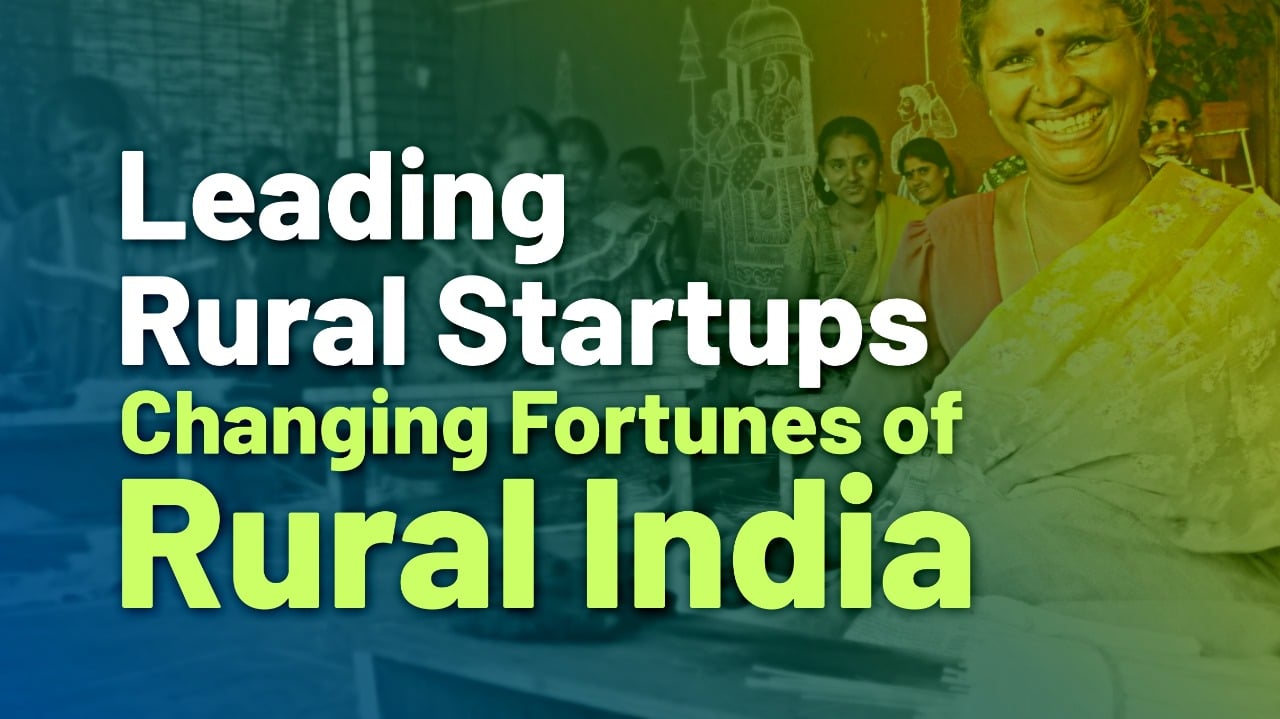



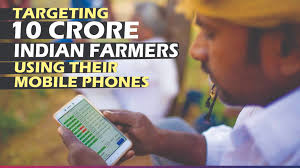
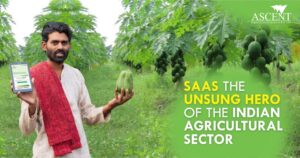
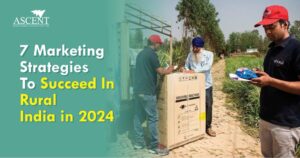


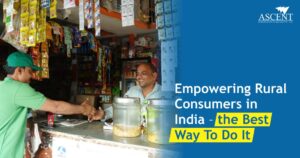


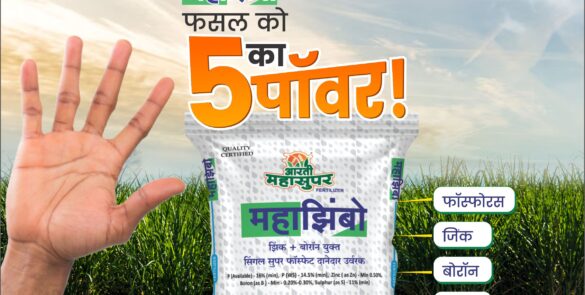

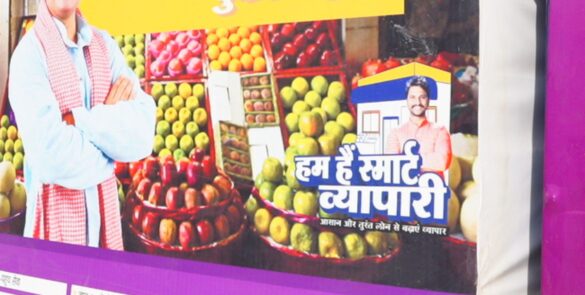


2 Responses
Thank You for giving me such an amazing information , its very helpful for me . I always love your blog and blogs from Hesa